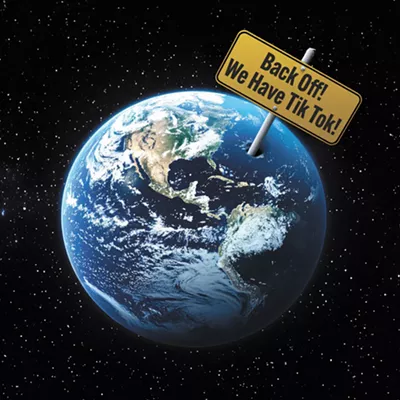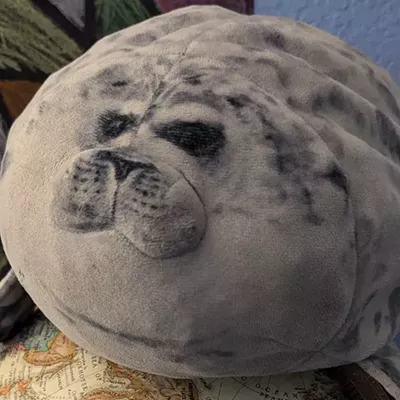
"Mom, there's an asteroid or something in the sky," my 12-year-old son, Danny, says from the breakfast table, where he's nibbling toast before he catches the bus to his cross-country meet.
In the 0.7 seconds it takes me to sprint from the stove to the sliding door, jumbled thoughts flail across my mind. Apocalypse! Dinosaurs! Ben Affleck in Armageddon! Wait, that's ridiculous. Weather balloon? Hot-air balloon? Weird-looking helicopter? Spaceship? YESSS, FINALLY, THE ALIENS!
Through the door, I see nothing but blue sky and the sprawling apple tree in the backyard, so Danny and I run outside in our socks for a better view. He points out a tuft of white, faint but distinctive in the halo of the rising sun.
"Dude, that's a comet!"
On Aug. 12, 2023, Hideo Nishimura, a Japanese astronomy enthusiast and space photographer, snapped a digital shot of his now-namesake comet.
On Sept. 16, I had totally missed the news about Comet Nishimura and its brief passage near the sun. I spent a few minutes staring up with my son, buzzing with surprise, before running inside to grab my phone and Google what we'd just seen. In the moments I was away, the comet disappeared into the morning light.
All day, I greeted people with, "We saw a comet today!"
But we shouldn't have.
I'd dragged Danny (and myself) out of bed at 6:10 am because I'd ignored a text from his cross-country coach the night before that said the bus was leaving 10 minutes later than planned.
If I'd paid attention, I would have set the alarm for 6:20, changing the rhythm of the entire morning. Danny is a kid who loves routines of all kinds. Instead of scanning the sky as he ate his toast just after sunrise, he would still have been curled in his customary post-wakeup ball on the couch, his blanket over his head.
One tiny change, and we might never have known the comet existed, let alone seen it. And it's not coming back for about 406 years.
I often fall down the rabbit hole of listing out all the variables that could have changed a situation.
Sometimes, it's about blame: If I hadn't been playing with my phone, I would have realized I'd left the stove on and I wouldn't be eating a charcoal-flavored grilled cheese. Sometimes, it's what my family calls "retroactive worrying": If I hadn't misplaced my keys, I would have made it out the door 10 seconds faster, and I would have crossed into that intersection sooner, and that truck would have hit me instead of whooshing by.
But my favorite application of this mental exercise is coming up with all the ways that so many things — coincidence and happenstance; good, bad and random choices; oversights, accidents and mistakes — can conspire to create moments of joy.
If I'd seen the coach's text, if I'd hit snooze just one more time, if Danny had sleepily stared at the grass instead of the sky, no comet.
If every single friend at Danny's 12th birthday party hadn't decided to join the cross-country team, convincing him not to play soccer, no comet. If he hated running as much as I do, no comet.
If the people who planted that apple tree put it 2 feet to the right, if whoever put in the chain link fence around the yard liked tall cedar fences better, if the people who built this house chose a different floor plan from the 1960 Boise Cascade Lumber Company catalog, no comet.
If a nice, quiet farm boy hadn't gotten up the nerve to go to the county fair with me 20 years ago, no Danny (and no comet). If the gravitational constant was just a little weirder, no comet (and no universe).
But none of those things happened, and all the things that happened did. And so, for a brilliant few minutes, my son and I saw something we'll never see again. ♦
Tara Roberts is a writer and educator who lives in Moscow with her husband and sons. Her novel Wild and Distant Seas is forthcoming from Norton in 2024. Follow her on Twitter @tarabethidaho.



















